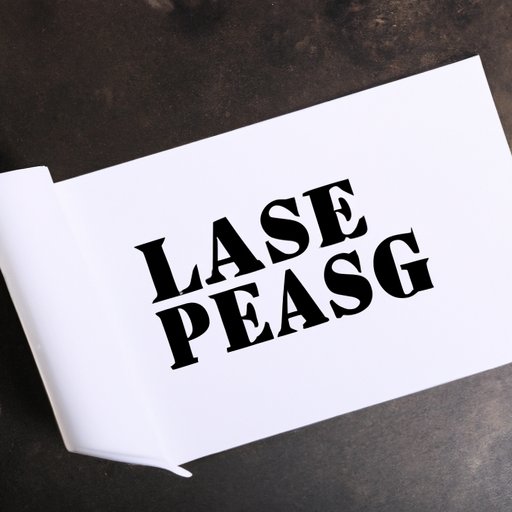
Can You Break a Lease? Understanding Your Options as a Tenant
When you sign a lease agreement, you’re committing to living in a specific rental property for a set period of time. However, changes in circumstances such as job loss, health issues, or safety concerns may arise, making it difficult or even impossible to honor that commitment. When faced with such a dilemma, many tenants wonder: can you break a lease? In this article, we’ll explore the legal implications of breaking a lease, when it might be justifiable, and what options you have for handling the situation.
Understanding the Legal Implications of Breaking a Lease
Breaking a lease means terminating the rental agreement before the agreed-upon end date. Depending on the terms of your lease agreement, this may result in financial penalties, legal action, or a damaged rental history and credit score.
As a tenant, you have a legal obligation to pay rent on time, keep the rental property clean and safe, and follow any provisions outlined in the lease agreement. Landlords, in turn, are responsible for maintaining the rental property to a certain standard and providing a safe and habitable living environment. If either party fails to meet these obligations, the other may have grounds for legal action.
If you break your lease, your landlord may charge you an early termination fee, keep your security deposit, or sue you for the remaining rent owed. Additionally, breaking a lease may affect your ability to rent in the future as landlords and property managers may view you as a high-risk tenant with a history of breaking legal contracts.
Examples of lease terms that can result in penalties for breaking a lease include clauses that require a minimum lease term, prohibit subleasing, or stipulate that the tenant is responsible for finding a replacement tenant if they move out early.
When Breaking Your Lease Might Be Justifiable
While breaking a lease should generally be avoided, there are some situations where it may be a reasonable decision. For example, if you experience a job loss that makes it impossible to pay rent, a major health issue that requires you to move closer to medical care, or safety concerns such as domestic violence or dangerous living conditions, you may have cause to break the lease.
When considering whether to break a lease, it’s important to weigh the potential risks and benefits. Will breaking your lease result in significant financial penalties or legal action? Is the reason for breaking the lease significant enough to justify those risks?

Negotiating with Your Landlord to Come to a Mutual Agreement
If you do decide to break your lease, it’s often best to approach your landlord to discuss the situation and see if you can come to a mutual agreement. This can involve negotiating an early termination fee or lease modification that works for both parties.
Before starting the conversation, prepare a detailed explanation of why you need to break the lease and what steps you’ve taken to try to minimize the impact on your landlord. Consider offering to help find a replacement tenant or pay for the remaining rent owed. It’s important to remain respectful and professional throughout the negotiation process, as this can impact the outcome.
How to Avoid the Consequences of Breaking a Lease
If you can’t come to a mutual agreement with your landlord or breaking the lease is simply not a viable option, there are strategies for minimizing the impact of the situation. One option is finding a replacement tenant to take over your lease. This can involve advertising your rental property, screening potential tenants, and handling the lease transfer and security deposit refund.
Another option is subleasing your rental property to someone else. Subleasing means allowing someone to rent the property from you for a period of time, while you remain responsible for the overall lease agreement with your landlord. Keep in mind that subleasing may not be allowed under the terms of your lease agreement or may require landlord approval.
During this process, it’s important to protect your rental history and credit score by following the proper procedures outlined in your lease agreement and keeping all communication with your landlord in writing.
The Pros and Cons of Subleasing Your Rental Property
Subleasing can be a viable option for tenants looking to break a lease but take on less risk. However, there are both benefits and risks to consider before taking this route. On the one hand, subleasing can help you avoid breaking your lease under negative terms, can reduce your financial obligation, and can allow you to keep your rental history and credit score in good standing.
On the other hand, subleasing can come with legal complications and can be a less stable solution since the tenant you sublease to may not hold up their end of the deal. Before deciding whether or not to sublease, it’s important to weigh these pros and cons and ensure that you have a solid written agreement in place with the sublessee.
Tips for Finding a Replacement Tenant to Take Over Your Lease
If you decide that finding a replacement tenant is your best option, there are several ways to advertise your rental property and screen potential tenants. Consider posting your ad on online rental websites, social media, community bulletin boards, and through word-of-mouth. When screening potential tenants, be sure to conduct background checks, credit checks, and contact references, and require a security deposit to protect yourself.
When handling the lease transfer and security deposit refund process, it’s important to follow the terms of your lease agreement and communicate clearly with your landlord to avoid any confusion or disputes.
The Importance of Properly Terminating Your Lease Agreement
Whether you choose to break your lease, negotiate a mutual agreement, sublease your rental property, or find a replacement tenant, it’s crucial to properly terminate your lease agreement as outlined by the lease itself. This means writing a lease termination letter that includes your reason for leaving, your move-out date, and any required information relating to your security deposit and final rent payments.
It’s important to deliver this letter to your landlord and to keep a copy for your records. Be sure to follow up with your landlord if you don’t receive a response to ensure that the lease has been terminated legally and that there are no outstanding payments or disputes.
Conclusion
Breaking a lease is a serious decision that can have significant legal and financial consequences. However, by understanding your legal obligations, weighing your options, and communicating effectively with your landlord, you can minimize the risks and find a solution that works for both parties. Remember to approach breaking a lease with caution and seek guidance and assistance if necessary.





